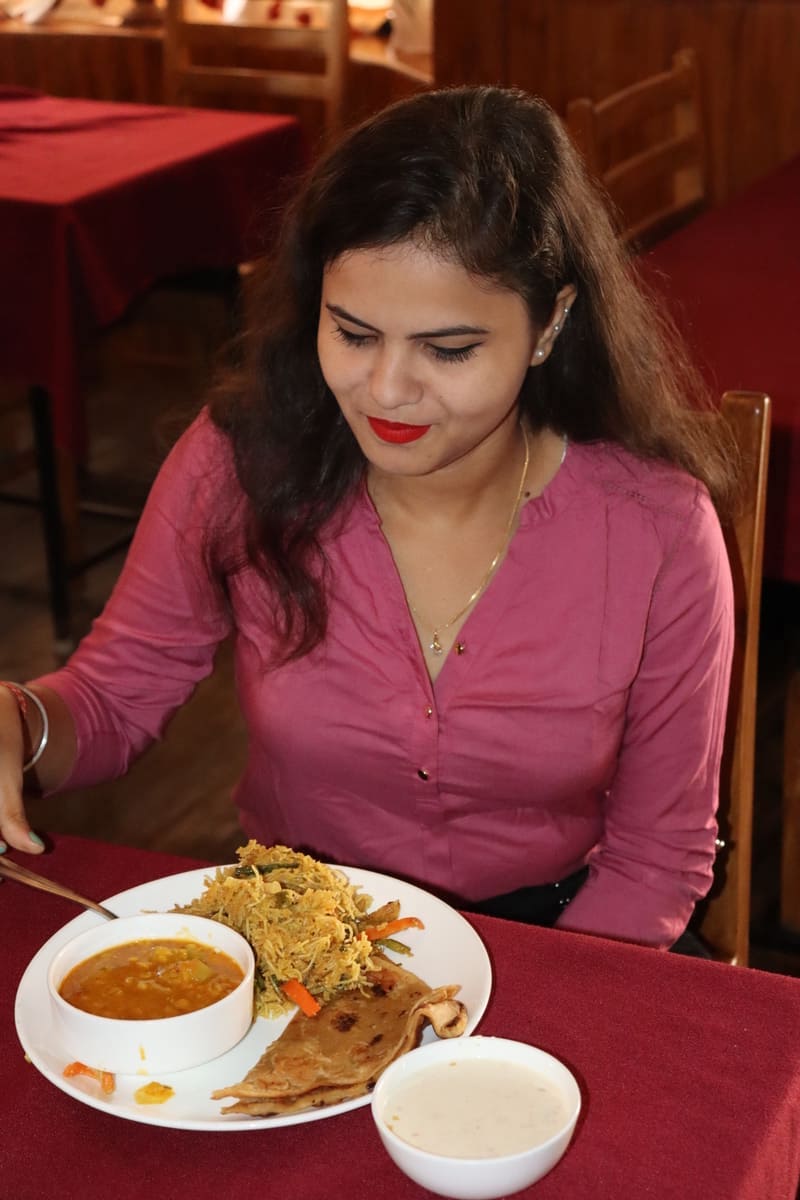I have watched CEOs devour biryani like vacuum cleaners, techies who type faster than they chew, and mothers who finish their meals standing up. When I tell patients to eat slower in my clinic, I hear it all: “Doctor, have you seen Bangalore traffic? I’ll need a three-hour lunch break!” or “My toddler will redecorate my house if I take twenty minutes to eat.” My personal favourite? “But doctor, my grandmother says I must finish everything on my plate before the crows count to three!”
The average Bangalorean spends two hours daily in traffic, forty minutes deciding what to order on Swiggy, and just six minutes eating their food. That’s right—we spend more time picking an Instagram filter for our food photos than eating the meal itself.
Last week, a software engineer burst into tears in my consultation room. “Doctor, I’ve tried everything – keto, intermittent fasting, even those fancy meal replacement shakes. Nothing works!” Her story echoed the frustrations I’ve heard countless times. But like many others, she had overlooked not what she was eating but how.
The science behind slow eating is fascinating. Recent research from the Karnataka Institute of Medical Sciences revealed that participants who took at least 20 minutes to finish their meals consumed 30% fewer calories than their quick-eating counterparts. Think about that – simply by slowing down, you could eat less while feeling more satisfied.
I often tell my patients we’re the only species that multitask while eating. Watch a cow grazing or a cat with its food—there’s a natural rhythm, an almost meditative quality to their eating. Meanwhile, we’re responding to emails between bites of our dosa, barely registering our sambar’s magnificent play of flavours.
One of my most memorable cases involved an IT professional who lost 18 kilos over eight months, primarily by changing his eating pace. “I used to finish my lunch in 5 minutes flat during office breaks,” he shared. “Now I take at least 20 minutes, and for the first time in my life, I taste my food!”
A landmark Japanese study published in BMJ Open, following nearly 60,000 people, found that slow eaters were 42% less likely to be obese than fast eaters. This isn’t just about calories but how our bodies process food. Research from The Journal of Clinical Endocrinology & Metabolism has shown that when we eat slowly, our gut releases more peptide YY and GLP-1 – hormones that regulate appetite and metabolism. It’s like conducting a symphony – when you slow down the tempo, every instrument gets its moment to shine.
The resistance I encounter is always interesting. “Doctor, you don’t understand – I have back-to-back meetings!” My response? You’re investing in your health like shares in Infosys – small, consistent actions compound over time. Ten extra minutes at lunch might save you years of health complications later.
The ancient wisdom of Ayurveda speaks of “Ahara Vidhi Vidhana” – the sacred science of eating. Proper digestion begins not in the stomach but in the mouth. A comprehensive study published in the American Journal of Clinical Nutrition found that participants who chewed each bite 40 times consumed 12% fewer calories than those who chewed 15 times. The research also showed increased levels of hormones that signal fullness to the brain.
Research has shown that eating slowly can enhance the thermic effect of food – the energy we burn during digestion. When you take time with your meals, your body processes the food more efficiently than when you rush through it between meetings. This means mindful, slower eating helps you eat less and might improve your body’s handling of those calories.
I have seen remarkable transformations in my practice. A busy mother of two initially dismissed slow eating as impossible with her schedule. She reported weight loss, better digestion, and more energy three months later. “I turned my meals into my meditation time,” she said. It’s the only twenty minutes I’m fully present in my day.”
The digital age has added another layer to our eating habits. Research published in the American Journal of Clinical Nutrition found that people who eat while distracted by screens consume significantly more food than those who eat mindfully. Studies have also shown that distracted eaters have poorer meal recall and are more likely to snack later, creating a cycle of mindless overconsumption.
Begin with your morning coffee or tea—feel its warmth and appreciate its aroma. Use smaller spoons, put your phone on silent during meals, and maybe even try eating with your non-dominant hand (though I warn patients to wear dark clothes when attempting this!).
The benefits extend far beyond weight loss. Research published in the Journal of Clinical Gastroenterology has shown that slow eaters experience significantly fewer symptoms of acid reflux and other digestive issues than fast eaters. Multiple studies have confirmed that our eating pace directly impacts our digestive health—it’s not just about weight management but overall well-being.
In a world racing at gigabytes per second, your meal remains life’s last sanctuary of slowness. Each mindful morsel is not just feeding your body—it’s honouring a ritual as old as our ancestors who understood that food touched by hand reaches the stomach and the soul. Let your fingers dance slower with your food tomorrow, tasting time itself.


2 comments
You are what you eat ,very beautifully explained by you in your blog. Let food be your medicine than later medicine become your food. So the key is to appreciate your food savor the flavour and eat slowly.
thank you